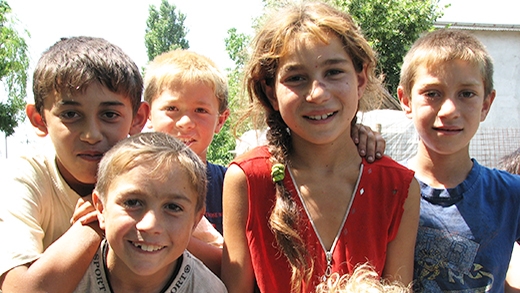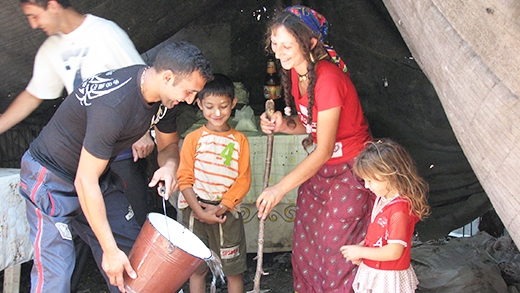For Mabera Kamberi, a Macedonian official, and member of her country’s Roma community, education is key to integration of this traditionally marginalized group.
For Mabera Kamberi, a Macedonian official, and member of her country’s Roma community, education is key to integration of this traditionally marginalized group.

Roma children
Photo: World Bank GroupKamberi was speaking recently in Madrid, on the sidelines of a pilot initiative aimed at creating a forum to improve integration of Roma.
The initiative gathered Kamberi and other policy makers from seven different Eastern European nations, where integrating Roma populations has long been problematic.
Representatives from Romania, Bulgaria, Serbia, Czech Republic, Slovakia, Hungary and the Former Yugoslav Republic of Macedonia met with international experts, on the premises of Fundacion Secretariado Gitano, a Spanish NGO known for its successes in providing Spain’s Roma community access into opportunities in mainstream society.
The knowledge sharing event was part of the Roma Inclusion Mobile Innovation Lab, a pilot initiative funded by the World Bank’s Innovation challenge which focuses on creating and sharing the strategies that can help integrate marginalized Roma, particularly through improved access to productive employment.
At the three-day Madrid workshop, participants were presented with - and debated - the potential of applying in their Eastern European countries some of the social integration strategies for vulnerable groups which have met with success in other parts of the world, including Latin America.

Roma family
Photo: World Bank GroupIn addition to helping better design country-specific solutions for labor market integration of Roma, participants at the hands-on workshop said the exchange of knowledge had also allowed them to better identify the continued challenges - and opportunities - of Roma communities in their different regions.
Participants at the Madrid workshop agreed that this innovative knowledge sharing activity - part first-hand experience, part learning from global good practices, and part interactive work - is a good beginning to further the development of policies and programs to improve the integration of marginalized Roma.
For more about the World Bank's work with Roma, visit: https://www.worldbank.org/en/region/eca/brief/roma